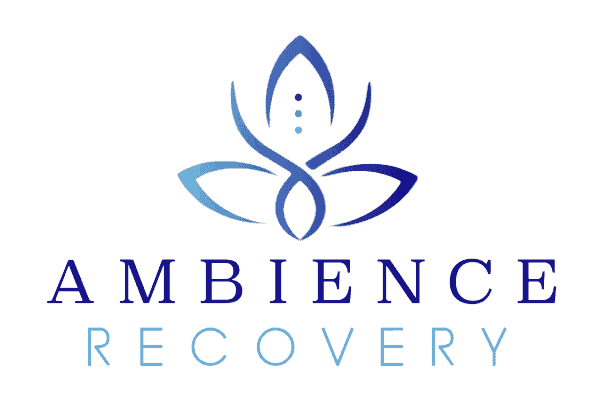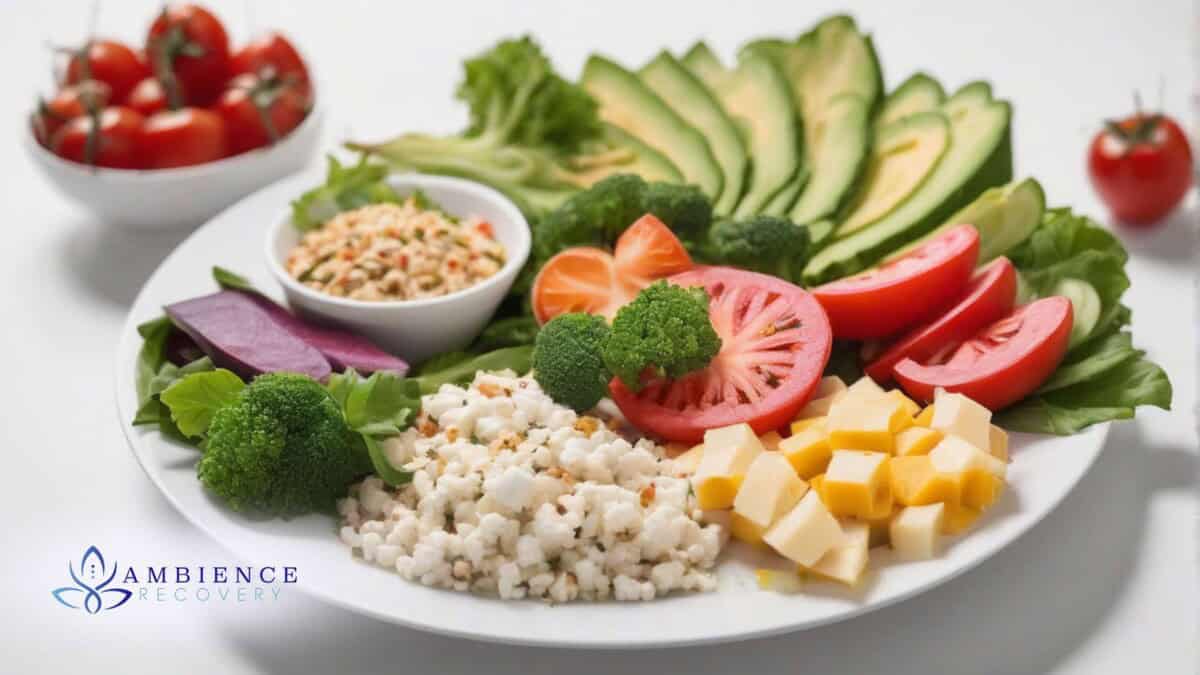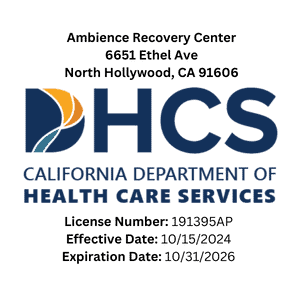Key Takeaways
- Nutrition Helps Repair the Body: Healthy eating restores the damage caused by addiction, helping your body heal.
- Boosts Mental Health: A proper diet can improve mood and reduce cravings during recovery.
- Essential Nutrients for Recovery: Certain foods and nutrients are critical for rebuilding your body and mind.
Introduction
When you think about addiction recovery, you might think about something other than nutrition. But the truth is, what you eat significantly affects how well you recover. A healthy diet can boost your physical and mental health, making it easier to stay sober. At Ambience Recovery, we believe that focusing on nutrition is vital to helping you feel your best during rehab. Let’s look at how good food can support your recovery journey.
How Nutrition Helps Heal the Body in Recovery
It is a known fact that addiction is a very destructive force in a person’s life and can cause a lot of harm to the body. It could be alcohol, drugs, or any other substance, and the effects include poor dieting, lack of vitamins, and damage to vital organs such as the liver or heart. When you enter recovery, your body requires the proper nutrients to repair the damage that has been done. That is where nutrition comes in.
A balanced diet with vitamins and nutrients is essential to help the body build up strength. Protein foods help repair muscles, while fruits and vegetables are sources of vitamins and minerals that the body requires. Nutrition can also enhance the digestive and immune systems, making the patient strong and less prone to diseases during recovery.
The Role of Nutrition in Mental Health
Good nutrition doesn’t just heal your body—it also helps your mind. What you eat affects the chemicals in your brain that control your mood, focus, and energy levels. For example, foods rich in omega-3 fatty acids, like salmon and walnuts, help boost brain function and reduce symptoms of depression and anxiety, which are common in addiction recovery.
Eating the right foods can also reduce cravings. You’re less likely to crave unhealthy substances when your body gets the necessary nutrients. This makes it easier to stay on track with your recovery goals. On the other hand, skipping meals or overeating sugar can cause mood swings and increase your cravings, making it harder to stay sober.
Essential Nutrients for Recovery
Certain nutrients are essential when you’re recovering from addiction. Here are some of the most beneficial ones:
- Protein: Found in foods like chicken, eggs, and beans, protein helps repair muscle and tissue damage caused by addiction.
- Vitamins and Minerals: Leafy greens, fruits, and vegetables are rich in vitamins like Vitamin C, D, and B-complex, which support your immune system, improve energy and boost mental clarity.
- Omega-3 Fatty Acids: In fish, nuts, and seeds, omega-3s improve brain health and reduce inflammation.
- Fiber: Whole grains, fruits, and vegetables provide fiber, which helps with digestion and keeps your blood sugar stable.
Creating a Diet for Addiction Recovery
Building a balanced diet is easier than you think. Here are some tips for creating a meal plan that supports your recovery:
- Eat Regular Meals: Stick to a regular eating schedule, which keeps your blood sugar stable and reduces cravings.
- Stay Hydrated: Drinking plenty of water is essential for flushing toxins out of your system and keeping your body functioning correctly.
- Avoid Processed Foods and Sugars: These foods can cause spikes in energy followed by crashes, making it harder to stay focused and avoid cravings.
- Incorporate a Variety of Foods: Include a mix of protein, fruits, vegetables, and healthy fats to ensure you get all the nutrients your body needs.
Healthy Eating in Rehab at Ambience Recovery
At Ambience Recovery, we know that nutrition is vital to recovery, so we provide nutritious meals. That is why we consider nutrition essential to our patient rehabilitation process. Our team will help you develop a nutrition plan to help you recover and be tailored to your needs. Whether it is about meal planning, cooking healthy meals, or just getting to know more about nutrition in recovery, we are here for you.
Ensuring that you eat healthy food during rehabilitation helps restore the body, boosts the spirit, and provides the strength to work towards the set recovery goals.
Conclusion
Nutrition is very important in the process of healing the body and the mind from addiction. A healthy diet not only helps in the recovery from the effects of addiction but also helps in the improvement of your mood and thus minimizes the chances of craving for drugs. At Ambience Recovery, nutrition is a critical component of the recovery process since it is lifelong. If you are willing to get back on track with recovery, please do not hesitate to contact Ambience Recovery at 866-721-7470 to learn more about the services that can help you on your path to a healthier lifestyle.
FAQs About Nutrition in Addiction Recovery
How does nutrition help in addiction recovery?
Nutrition assists in healing the bodily harm caused by addiction and in the individual’s mental well-being. It increases energy, decreases appetite, and regulates mood.
What foods should I eat during recovery?
Ensure you eat foods rich in proteins, vitamins, minerals, and omega-3 fatty acids, such as lean meats, fruits, vegetables, whole grains, and nuts. These are useful in rebuilding muscle tissue and the brain.
How can healthy eating improve my mood in rehab?
Good foods for the body, especially vitamins and omega-3 fatty acids, assist in regulating the chemicals in the brain associated with mood. This can help decrease anxiety and depression and increase mood and concentration.
What role does nutrition play at Ambience Recovery?
At Ambience Recovery, we include nutrition in our treatment plans. We help clients create healthy meal plans, supporting their recovery and improving their well-being.
Can proper nutrition reduce cravings during recovery?
Eating balanced meals that provide the proper nutrients can reduce cravings by keeping your blood sugar stable and helping your body get the fuel it needs without turning to unhealthy substances.
Resources
https://extension.usu.edu/heart/research/diet-nutriton-and-substance-use-disorder
https://www.webmd.com/mental-health/addiction/addiction-and-nutrition
Katie is a Licensed Clinical Social Worker who has worked as a primary therapist, supervisor, and now clinical director for SUD/MH treatment centers for the past 12 years. Katie is trained in Brainspotting, EMDR, Internal Family Systems and Dialectical Behavior Therapy and is passionate about treating substance use disorders, trauma and grief.






